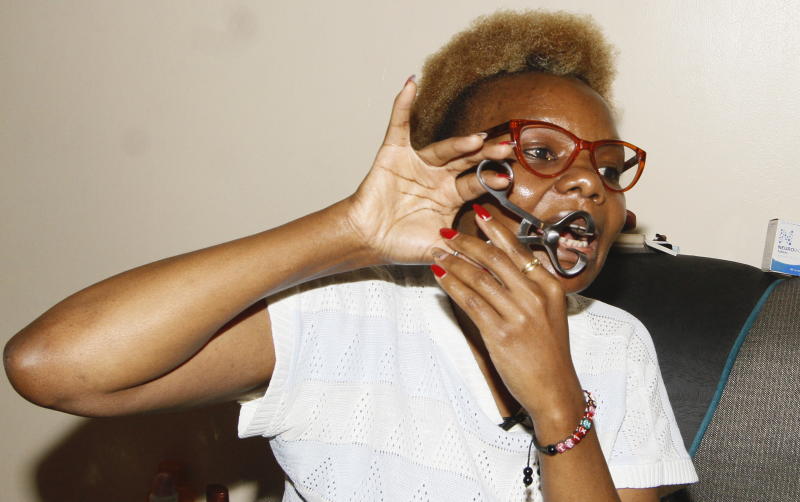×
The Standard e-Paper
Join Thousands Daily

Teresia Njeri explains how she is managing a rare cancer of the jaw. Half of her jaw has been removed. [Jenipher Wachie. Standard]
Apart from a scar on her upper lip and her intonation, nothing else tells you about Teresia Njeri’s painful battle with a type of cancer that saw part of her jaw removed.